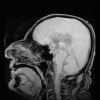My local health store (GNC) sells this supplement. Has anyone tried Inositol? Any positive effects? It is suppose to improve signal transduction between cells, including nerve impulses.

Inositol
#1
Posted 20 April 2006 - 05:45 AM
My local health store (GNC) sells this supplement. Has anyone tried Inositol? Any positive effects? It is suppose to improve signal transduction between cells, including nerve impulses.
#2
Posted 20 April 2006 - 09:06 AM
---
Niacin is the greatest vitamin on the planet. Partially converts to NAD+ / NADH in the brain and only costs a few cents.
#3
Posted 20 April 2006 - 10:01 AM
#4
Posted 20 April 2006 - 09:59 PM
#5
Posted 20 April 2006 - 10:32 PM
I don't feel there is any need to buy inositol when you can buy a 500 x 500mg
niacin capsules for the same price as 30 grams of inositol.
#6
Posted 21 April 2006 - 01:09 PM
#7
Posted 21 April 2006 - 07:26 PM
#8
Posted 02 June 2010 - 09:47 AM
J Cell Biol. 2005 Sep 26;170(7):1101-11.
Lithium induces autophagy by inhibiting inositol monophosphatase.
Sarkar S, Floto RA, Berger Z, Imarisio S, Cordenier A, Pasco M, Cook LJ, Rubinsztein DC.
Department of Medical Genetics, University of Cambridge, Cambridge Institute for Medical Research, Addenbrooke's Hospital, Cambridge CB2 2XY, England, UK.
Abstract
Macroautophagy is a key pathway for the clearance of aggregate-prone cytosolic proteins. Currently, the only suitable pharmacologic strategy for up-regulating autophagy in mammalian cells is to use rapamycin, which inhibits the mammalian target of rapamycin (mTOR), a negative regulator of autophagy. Here we describe a novel mTOR-independent pathway that regulates autophagy. We show that lithium induces autophagy, and thereby, enhances the clearance of autophagy substrates, like mutant huntingtin and alpha-synucleins. This effect is not mediated by glycogen synthase kinase 3beta inhibition. The autophagy-enhancing properties of lithium were mediated by inhibition of inositol monophosphatase and led to free inositol depletion. This, in turn, decreased myo-inositol-1,4,5-triphosphate (IP3) levels. Our data suggest that the autophagy effect is mediated at the level of (or downstream of) lowered IP3, because it was abrogated by pharmacologic treatments that increased IP3. This novel pharmacologic strategy for autophagy induction is independent of mTOR, and may help treatment of neurodegenerative diseases, like Huntington's disease, where the toxic protein is an autophagy substrate.
PMID: 16186256 [PubMed - indexed for MEDLINE]PMCID: PMC2171537
Nature. 2002 May 16;417(6886):292-5.
A common mechanism of action for three mood-stabilizing drugs.
Williams RS, Cheng L, Mudge AW, Harwood AJ.
Intracellular Signalling Group, MRC Laboratory for Molecular Cell Biology, University College London, Gower St, London WC1E 6BT, UK.
Abstract
Lithium, carbamazepine and valproic acid are effective mood-stabilizing treatments for bipolar affective disorder. The molecular mechanisms underlying the actions of these drugs and the illness itself are unknown. Berridge and colleagues suggested that inositol depletion may be the way that lithium works in bipolar affective disorder, but others have suggested that glycogen synthase kinase (GSK3) may be the relevant target. The action of valproic acid has been linked to both inositol depletion and to inhibition of histone deacetylase (HDAC). We show here that all three drugs inhibit the collapse of sensory neuron growth cones and increase growth cone area. These effects do not depend on GSK3 or HDAC inhibition. Inositol, however, reverses the effects of the drugs on growth cones, thus implicating inositol depletion in their action. Moreover, the development of Dictyostelium is sensitive to lithium and to valproic acid, but resistance to both is conferred by deletion of the gene that codes for prolyl oligopeptidase, which also regulates inositol metabolism. Inhibitors of prolyl oligopeptidase reverse the effects of all three drugs on sensory neuron growth cone area and collapse. These results suggest a molecular basis for both bipolar affective disorder and its treatment.
PMID: 12015604 [PubMed - indexed for MEDLINE]
#9
Posted 02 June 2010 - 12:02 PM
I was, however, already on a SSRI. Perhaps it only works for folks who aren't already manipulating the serotonin system.
#10
Posted 03 June 2010 - 07:06 PM
Lower doses did seem to decrease anxiety and improve mood.
I have been off it for some time, but re-started yesterday.
Definitely psychoactive.
#11
Posted 03 June 2010 - 07:36 PM
But I take Inositol IP6, and that could be good for cancer prevention.
But it brings my mood down the regular form that is, at high doses.
#12
Posted 03 June 2010 - 07:41 PM
#13
Posted 31 August 2013 - 01:10 PM
Inositol worsens ADD, watch out for that.
Sorry for bumping this post, but @ funkodyssey, are you sure about this?
Damn, i just bought it as an addon to help me study, and i suffer from bipolar hypomania which is almost like Adhd (atleast for me)
Furthermore there are a lot of reviews about the choline-inositol combination helping a lot of people to study better.
was planning to take around 250 mg daily. (not the 18g used to treat psychiatric disorders)
Should i keep it aside?
Edit: I just found this link. It says inositol is used as treatment for ADHD
http://www.braintrop...e-and-inositol/
Edited by FocusPocus, 31 August 2013 - 01:20 PM.
#14
Posted 11 October 2013 - 08:08 AM
#15
Posted 15 October 2013 - 03:46 AM
Inositol worsens ADD, watch out for that.
I know this is a somewhat older thread, but I'm curious to know what the mechanism of action is that causes a worsening of ADD. If you're still around Funk Odyssey, I'd love to know. I've been experimenting with Inositol at about 12g/day for the past several weeks and if anything, I don't notice much of anything at all ... but I do have issues with focus sometimes and who knows, maybe this is actually doing more harm than good for me (and others).
#16
Posted 15 October 2013 - 04:24 AM
2 user(s) are reading this topic
0 members, 2 guests, 0 anonymous users





















































